Are upright & console acoustic pianos going to be extinct one day? Maybe so! Ten years ago few people thought that newspapers and even network TV News Channels would slowly start going out of business, but they have in favor of Cable & Internet News. You get that news faster, better, at your own pace and from anywhere in the world about anything in the world whether you see it on your computer or iPhone. Ten years ago few people thought that email would replace regular mail, but it is in large part. Cell phones are replacing land-line phones, texting communication is starting to replace voice communication, digital cameras have all but replaced 35m film cameras, flat screen TV’s have replaced standard TVs, DVD’s have replaced VHS, and in the future books will be replaced by the new Apple iPad, Kindle, and other similar devices as they come out and cost less money, and the list goes on.
Whatever electronic, mechanical, or materially produced product you thought was irreplaceable is, in many cases, being replaced by something better, cheaper, and more exciting these days. So get ready because…Acoustic console & Upright Pianos may become a thing of the past one day! They will (likely be) mostly be gone from homes, schools, churches, stages, recording studios, retirement centers, and everywhere else, although this is my opinion based on what I see as continued obsolescence of products made by human beings. The opinion of many families, especially here in the US is that a good digital piano is a great alternative for them because of low maintenance issues, headphone capability for private practice allowing for more practice time in homes, recording options, direct connection to iPad for exciting home piano learning and practice, and the ability to learn orchestration and rhythm timing in ways not possible on regular acoustic pianos.
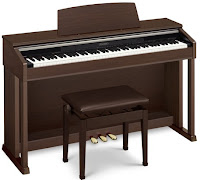 Why might this happen?…because regular upright & console pianos are being replaced (as I speak) by digital and mechanical technology so advanced that you may not want a standard piano anymore, depending on who you are. Have you played some of the brand new cabinet model digital pianos from Roland, Yamaha or Casio lately like the Roland LX15, Casio PX850, or the Yamaha CLP470, Kawai CA95, MP10, etc? These instruments shouldn’t even be called “digital” because in many cases, you’ll have a very difficult time telling the difference unless you are a very experienced player, and even then you might want one of these new digital piano pianos (I know I would). They have “ivory feel keys” (like the kind pianos used to have before elephants became protected), they never go out of tune (standard pianos need at least one tuning a year at a cost of about $100 each…schools and churches need about 3-4 per year), they have headphone output jacks for private practice (can’t do that on a standard piano), strings can’t break (there are no strings), soundboards cannot crack in the dry weather (there are no standard soundboards although some digital pianos have modified versions), the 3 pedals can function just like acoustic pianos, these pianos weigh considerably less so you can move them easily, and the bottom line is, many of them (not all) sound great and certainly good enough for most applications.
Why might this happen?…because regular upright & console pianos are being replaced (as I speak) by digital and mechanical technology so advanced that you may not want a standard piano anymore, depending on who you are. Have you played some of the brand new cabinet model digital pianos from Roland, Yamaha or Casio lately like the Roland LX15, Casio PX850, or the Yamaha CLP470, Kawai CA95, MP10, etc? These instruments shouldn’t even be called “digital” because in many cases, you’ll have a very difficult time telling the difference unless you are a very experienced player, and even then you might want one of these new digital piano pianos (I know I would). They have “ivory feel keys” (like the kind pianos used to have before elephants became protected), they never go out of tune (standard pianos need at least one tuning a year at a cost of about $100 each…schools and churches need about 3-4 per year), they have headphone output jacks for private practice (can’t do that on a standard piano), strings can’t break (there are no strings), soundboards cannot crack in the dry weather (there are no standard soundboards although some digital pianos have modified versions), the 3 pedals can function just like acoustic pianos, these pianos weigh considerably less so you can move them easily, and the bottom line is, many of them (not all) sound great and certainly good enough for most applications.
You can hear the actual string vibrations and overtones on some models ( but there are no strings), you can hear cabinet & soundboard resonance (there is no actual soundboard in most), and you can get a very close replication of acoustic upright & grand piano touch in these new digital pianos. Many of them have attractive furniture style cabinets that look beautiful in the home, church, or school and…they’re fun to play. Oh and you can record your music from these digital pianos directly to a USB flash drive in midi format, and on some models in .wav & MP3 format. You can then download them into your computer for storage, editing, playback, sheet music score printing, and emailing to friends & family (can’t do that on a traditional acoustic piano)! And in ten years from now…it’ll be even more incredible as to what they’ll be like. Imagine a cassette tape recorder turning into a CD player which has now become the iPod. It will be like that. Most people (ho are young now) may not want a standard upright piano anymore in the future and in my opinion, many acoustic pianos be nearly worthless as time goes on (many of the older spinet & console pianos now are nearly worthless, although with the better name brand upright & grand pianos it could be years from now, but it may happen).
So what’s the bottom line? If you don’t believe what I’m telling you then you ought to get out more and try these new digital pianos for yourself.
If you are thinking about buying a piano, then think twice about buying a regular acoustic console or upright over a digital pianos. A traditional Grand Piano is still a great instrument and is holding a decent value overall (although many do depreciate, especially in this economy). But someday, those too may be all but gone in the average home, on stage, and in churches. Perhaps only “purists” will want these acoustic instruments because it’s what they are accustomed to or they just want the “organic” experience. There will always be people like that but that’s the way it’s always been.
But if you want an excellent piano value and great musical playing experience (in my opinion) and you want to spend less money too, then seriously consider one of the new advanced technology digital pianos that are available right now, but beware of one thing; there is still older technology digital pianos out there that do not produce a satisfying piano playing experience, so stay away from those. By the way, I have had top brand digital pianos for years and they seldom break or have electronic problems and can be more reliable and take less maintenance than some regular acoustic pianos, assuming they are a good brand.
If you want more info on new digital pianos and LOWER PRICES than internet discounts, please email me at tim@azpianowholesale.com or call direct at 602-571-1864.
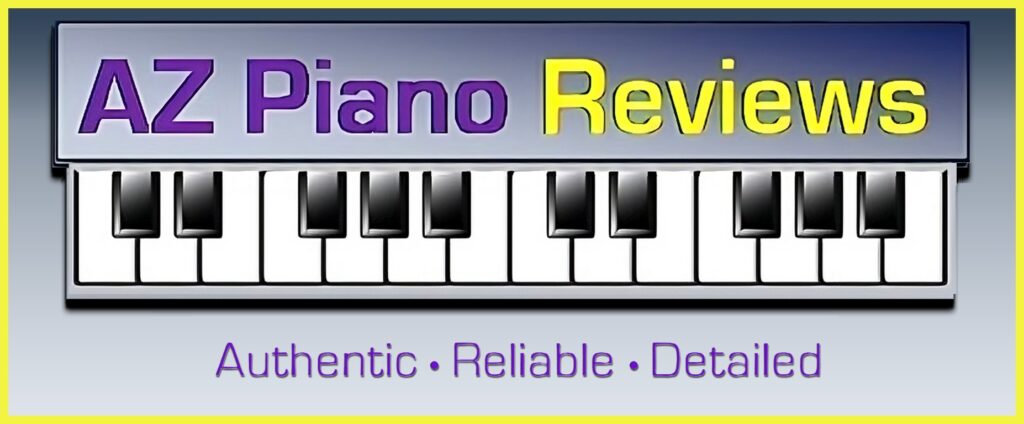


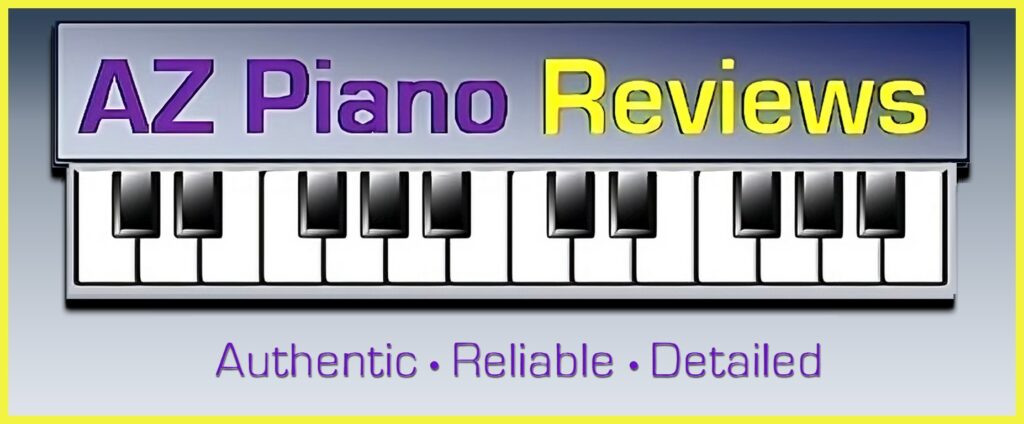
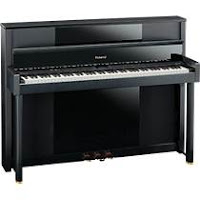
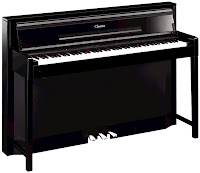


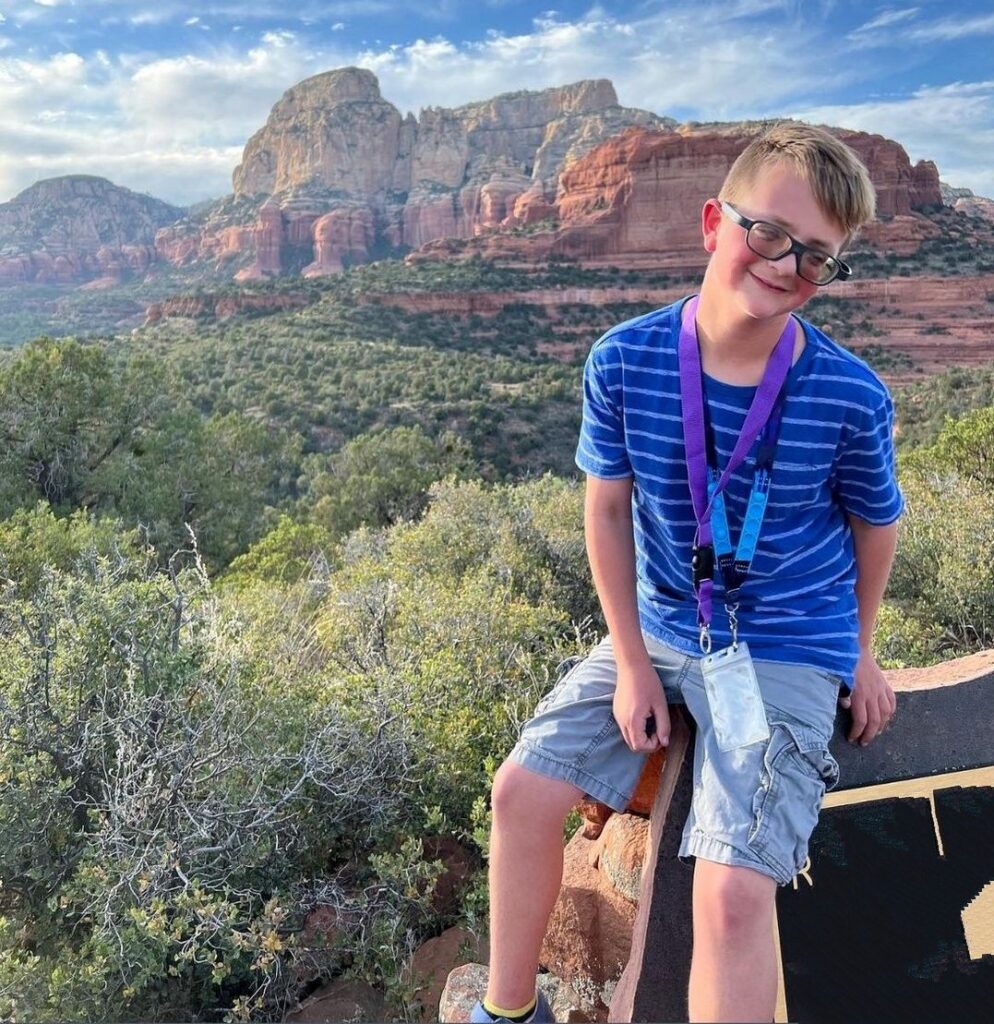
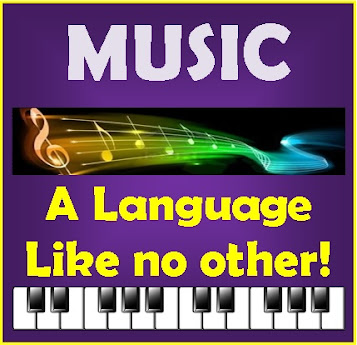
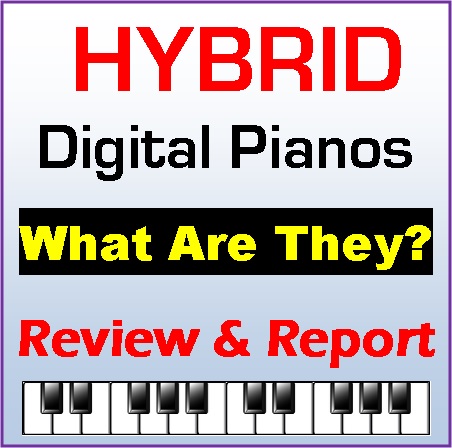
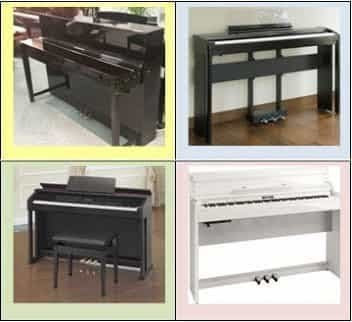
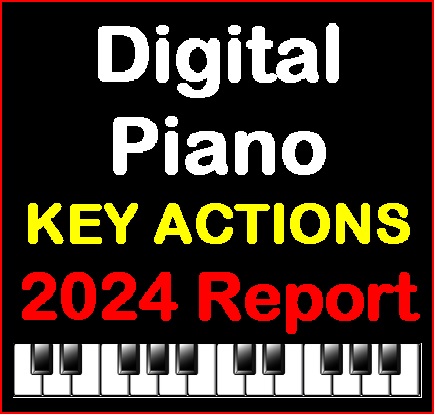
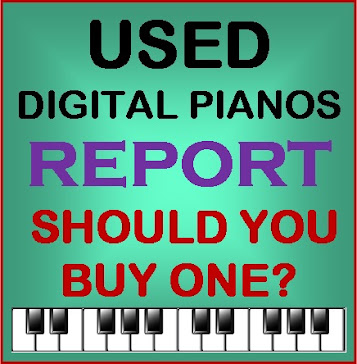
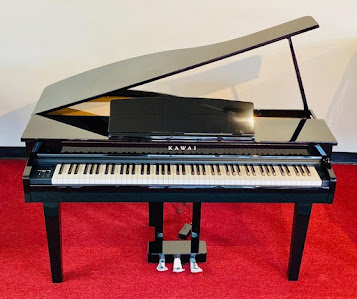
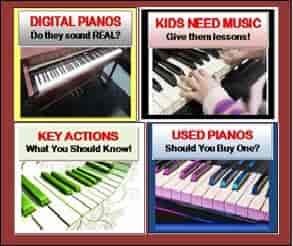
Wow. I about died when I heard that. I have played a Yamaha CP30, Roland RD 700 GX, and V-Piano. I am a classical pianist/composer and have found it sounding and feeling worse than a Yamaha U1! I understand you want to increase business in your store but lying about "digital" pianos(which are things that look like pianos, some with wood keys and based off of stero multisamples and software) that are no where as good as a used Hamilton upright I have played (purchased by a friend at a pianosale for $60.00). What happens Tim when you are practicing Rachmaninoff's Conerto no.3 and the "power" goes out? Steinway, Yamaha, and Bluthner should all have a commercial. The commercial should have a pianist performing a Polonaise by Chopin at Carnegie Hall, the first time being a Steinway, midel D. Next time, the pisnist sould play the "supernatural multisamlpe software" Roland V-Piano. The power cable goes out=bye bye concert:( I am a freshman,(hopefully able to earn a scholarship for Classical Piano) and have played a beautiful vintage Heinztman upright, Steinway model D,A,B, Mason Hamlin model AA, Baldwin SD10E, Yamaha CFIIs(just like ELton's disklaiver) and have played the digitals mentioned above. NO contest. I play on a 40 year old American console(with very could scaling with harmonies most baby grands dont have in the treble end) and would take it over a DIGITAL. I like digiat pianos for rock. They get the job done, but thats about it. Please, tell the truth, a Wyman Console for half the price of a V-Piano or Yamaha CP1 is far better.
Thanks for your comments. I enjoyed reading them! I will answer them by saying that my blog is an opinion (so there are no lies either intentional or otherwise) based on my professional knowledge of the piano & music business as it stands now in the US. I do not have an actual music store or web site with shopping carts. I only have a teaching music studio.
This particular article deals only with vertical pianos, not grands. Vertical pianos have consistently lost sales to digital pianos for many years now and are at their lowest sales ever nationally, according to actual sales numbers in the US. There are also fewer piano stores in the US than ever before, and digital pianos are outselling acoustic consoles & uprights 10 to 1.
Beyond this, in my experience, there are very few serious musicians in the US who play on upright pianos for very long before going to a baby grand or full grand if they possibly can.
As for not having electricity due to a power outage as opposed to a regular non-powered upright, I have heard that argument before and it is very weak, although it is true. But that is in the small minority and progress rarely stops for the minority. And like I say, this article deals only with vertical pianos, not grands and it's the acoustic grands that are used in concerts, so power issues would not be a problem there.
The fact is, as digital technology gets more powerful and is able to replicate things in ways that are far beyond what we can now conceive, we will see upright pianos all but disappear in the not too distant future. And that has a lot to do with the fact that manufacturers will have a hard time making money (especially in the US) if they cannot sell enough of their product which definitely will be the case with vertical pianos in the future.
It is possible that a few vertical piano manufacturers will be holdouts (Yamaha, Kawai, Steinway, certain European makes, etc) and continue making verticals for awhile, but those companies will not be selling many due to low demand. Yes, generally speaking and in my opinion, good uprights can still do better piano playing than digital verticals at the moment, but that is changing fast. And there are fewer people than ever before who appreciate and need or want the subtle differences that an acoustic upright still offers. You would be in the minority. In fact from what I have seen and have been told by top University piano instructors in the US, most (a large majority) serious college piano students these days are Asian. There is also little money and few job opportunities for serious pianists these days. It's almost a waste of time for some because of financial considerations. That's a fact. So most piano students turn into piano teachers and occasionally play gigs , at a church, or in occasionally in an orchestra. But very few. Music overall is a hobby for most people so they can express themselves in healthy, relaxing ways. You definitely don't need an acoustic piano to do that:)
By the way, you are probably aware that many popular pro musicians take real grand piano cabinets, gut them out, and then put digital piano keyboards in them like Yamaha's & Kurzweil's when they play on stage. So even some of the acoustic grands that people think they see aren't acoustic at all. However, acoustic grands will still be around for many more years because digital's cannot compete with them…yet. But someday, and I don't know when that will be, acoustic grands will start giving way to digital's. It's just a matter of time.
I agree, digitals offer many more "education" capabilities shall we say than a traditional acoustic piano. However, many companies now produce acoustic pianos with even more value.Yamaha offers an entry level disklaiver system and 'stencil' Story & Clark's are fitted now fitted with a device similar to a Gulbransen midi rail. Oh, I believe the acosutic piano industry is here to stay. People like darrel and Del Fandrich, and companies such as Sauter, Wendl&Lung, Kawai, and Stuart & Sons continue to produce better pianos that make it harder to produce digitally.
I agree there will always be people who want and can afford a "handmade high quality" acoustic piano in a beautiful custom all wood cabinet. I know that an acoustic piano can be a fine piece of furniture as well. But there are relatively few piano listeners and players in the world who will appreciate the subtle differences that an acoustic piano delivers over a digital piano as digital technology continues to progress over the coming years. The purists will always be with us and that's why I believe fine custom cars, fine custom wine, and fine production of anything "organic" and "traditional" will still be desired by a select group of individuals. But for the masses, acoustic pianos in general are losing their prestige of ownership and the edge they once had in sound and touch over a good quality digital instrument. Time will tell but it's a certainty digital piano technology will continue to improve in dramatic ways over the coming years.
It's not about how the piano looks. It's that I can't play anything above cruise ship quality music on a digital instrument. Most of my friends (who arent considerably wealthy or snobs) own acoustic instruments, many are still very new. The is the action is irreplaceable. Corect me if i'm wrong, butThe RD 700 GX boasted escapement? I could still not play what I could on an acoustic piano. The digital actions to me are either 1 to spongy or 2 to firm and exagerated if you know what i mean. I mean that you feel a like 10 pound thump to immitate the check. Most pianists I know will prefer at least a console (a vertical piano with a full sized direct blow action, often with double repetition) forpractice or performance. I am personally not a fan of hanmade instruments, as the product such as steinway is not consistent. Company's such as Yamaha produce very goodinstruments at extrmely affordable prices, (as well as CHarles R Walter. Best upright I've played besides a u3) The point I make to all my friends and professional musicaians is a piano is an instrumet, like a guitar, it creates music. Digital pianos are synthensizers, not pianos. I can prove and have proven to many musicians (professionals and amauteurs alike) the differences between the two instruments in side by side comparison. I play a simple chord with the pedal depressed on an acoustic piano, than the same on a roland, korg, or kurzweil. GUess which iunstrument wins? the one with soul, dynamics, and the one that sings. (p.s since when were companies like fanrich (who typically uses dongbei and beijing heintzman grand pianos and bohemia upright pianos only to make slight adjustments? you can get a new kawai baby grand for just a tad (if that) more than a v-piano. i would consider at least the regular kawai (excluding shigeru) a normal, economical mass produced product no different than a car or tv. I also see you have not displayed my previous post. Did it contradict your ignorance in what makes a pianist? i believe in your blog people have the right o know the truth, not "Come, hear me say how music matters only one what makes you happy so invest your money in a digital that will last 10 years when for just a bit more you could have a beautiful grand or upright that last 100 years. Just please, post a topic explaining the importance of the acoustic piano in music education and what the differences are"
Playing music needs to be for the masses and whatever stimulates beginners and others to pursue playing music is a good thing. Unfortunately there are 100's and even thousands of good used name brand acoustic uprights, baby grands, and full grand pianos being offered on Craigs List for just a fraction of what they cost new because people originally buy them thinking they or their children will play them for many years. Although some of them do, most of them do not and therefore the pianos sit around doing nothing. An acoustic piano does not play itself and there is only a very small percentage of the population here in the US that takes piano lessons and actually learns how to play a piano well. In my opinion that situation has mainly been the fault of many of the parents, piano teachers, and the acoustic pianos themselves and how all that relates to the student who is typically a younger child when they start lessons.
Beautiful music can be made by anyone willing to try whether it's an electric or acoustic violin, guitar, piano, or a variety of other instruments. Unfortunately, there will continue to be "piano players" who discourage others, especially beginners, from really enjoying music because they feel the instrument and/or lesson program needs to reach a certain high standard or else it's not worth playing and the music being played will not come out good.
I believe that nothing beats listening to a well played beautiful full size quality acoustic grand piano. However, by necessity, I believe digital pianos will continue to improve (as they are now) and open up more opportunities for students to play while having fun doing it. As I have mentioned in another post, the joy of playing music comes from within and that joy can be had on many different types and price ranges of instruments. The bottom line is, some people are just more "picky" and more "high maintenance" than others but that's the way some people are. And for them, they have the opportunity to choose what makes them happy. And if that means only choosing an acoustic piano that meets certain standards, then that is fine. But that kind of thinking does not make for more kids & adults playing piano nor will it help them to have more fun with music. The enjoyment and playing of music is all that matters in the end, so how a person gets there doesn't really matter so much.
Anonymous on May 9 said …two instruments in side by side comparison. I play a simple chord with the pedal depressed on an acoustic piano, than the same on a roland, korg, or kurzweil. GUess which iunstrument wins? the one with soul, dynamics, and the one that sings….
This open string resonance acoustic effect is replicated digitally in the current higher range models from Yamaha and Casio. Yamaha Clavinova also reproduce the key-off damper-muting and soundboard resonance sounds. See http://music.yamaha.com/products/highlights/keyboardsAST/index.html for the explanations and demo sound.
Tim,
Your points are well-taken. Digital pianos are getting better, just as digital cameras largely overtook film cameras. And like digital cameras, which could compete before equaling or exceeding film cameras in every aspect, so it is with digital pianos. Digital cameras provided the advantage of immediate access to an image, often in a small form factor. Digital pianos bring their own advantages, which you have mentioned. And these advantages matter in many settings.
I work on the campus of a fairly large academic medical research institute. Music is not our focus, but nevertheless it would be nice to occasionally hold small concerts ranging from rank amateur up to and including professional (but volunteer) musicians. Such social events help foster cohesiveness among the students and faculty. Nevertheless, there is no way we could justify government money for purchase and maintenance of a piano, and many who give charitable donations would also be upset to see their money spent for such purposes. Another relevant aspect of this situation is that I can imagine at least three different places on our campus where our students and faculty might want to hold such small concerts, but at least two of them would not be appropriate for permanent placement of a piano.
Enter high quality digital pianos like the Celviano AP-420. We could almost certainly raise enough money from voluntary donations of student and staff to purchase one, no continuous funding for tuning and regular maintenance would be required, and a few students could be entrusted to move this 80 lb instrument when it is to be used in a different room. Then if a student quartet from the local conservatory wants to put on a small chamber concert in our medical science museum, it becomes thinkable. They might prefer an acoustic piano, but a good, modern digital one will serve.
Many people do not care about specific sound qualities that are heard differently between a varied range of different acoustic or digital pianos and keyboards. But for me; I mean myself not being even considered as accompishing up to a beginner level player, I love the deep mellow, but still just bright enough tones of a 30 year old W series 59" high acousic Yamaha made of hand-oiled teak wood. There is no digital keyboard that I have heard played on CDS, MP3, or live performance, which has ever for me come close to creating that kind of pleasure that touches the depths of my heart and soul. I do not sell musical instruments nor do I teach piano or other musical skills. I am simply one of the "nameless, faceless" people in this country, who, even so, can perceive the heart of such musical tone and timber that can move the soul.
Based on my own recent experiences, I have to say accoustic pianos won't be obsolete anytime soon. I am an experienced musician, but admittedly new to the piano. I tried side-by-side high-end digitals (Yamaha CP-5 and Kawai MP10) vs accoustic uprights (eg: Kawai K-8) last week at dealer's showroom. If listened to from a distance, the digitals sound quite nice but the feel is "rubbery". Up close, to the piano player, the digital sounds "manufactured". You just don't feel the sound propogate like an accoustic. This is consistent with others who predicted my conclusion, having said "I told you so." As a result, I'll stick with an accoustic as prime, recognizing that digitals do have their role.